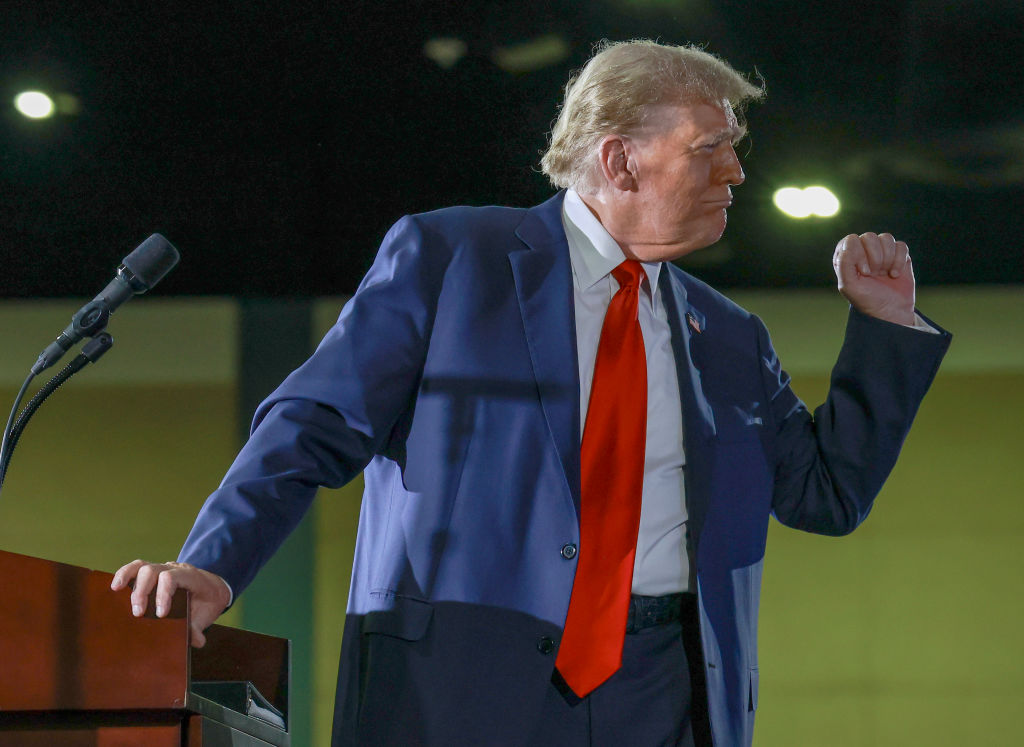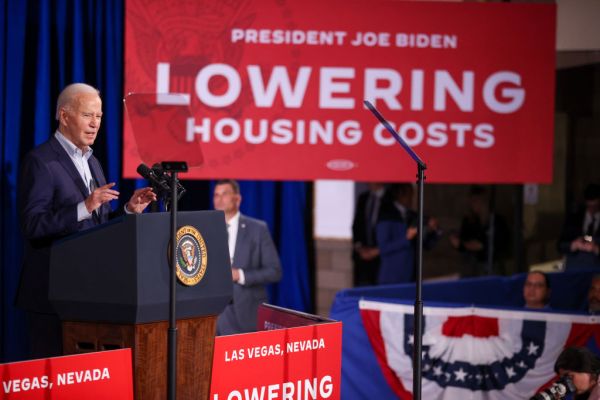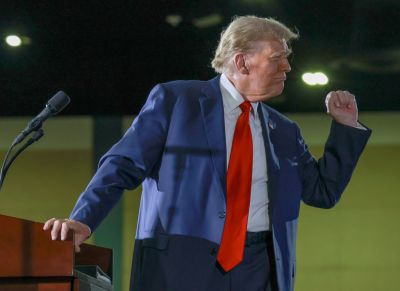There’s a great deal to take in about this remarkable period of change in American politics, so you might miss the big stuff in the minutiae.
Older people are getting more Democratic. Younger ones are moving toward the GOP. Black voters, especially men, are getting more Republican. So are Hispanic voters. White voters with college degrees continue to get more Democratic, but working-class Americans increasingly see themselves as Republicans.
Indeed, a lot of the other changes have their roots in the new partisan identities among social and economic classes. The poorest American voters are still solidly Democratic, but after decades of getting skunked by double-digit margins among self-described “working class” and “lower class” voters, Republicans have truly become the party of the working class. Meanwhile, more and more affluent suburbanites, once the bulwark of GOP support, are going with the blue team.
But more is not the same as most.
For example, Donald Trump and the Republicans will still probably lose among black voters by a 4-1 ratio, despite the typically exaggerated claims of the candidate and his campaign. But when it comes to key voting blocs in large concentrations—black voters in swing states cities like Detroit, Philadelphia, and Atlanta, for instance—one party stealing just a handful of points can make all the difference.
So, Trump goes hard for black voters, and President Joe Biden has to respond and spend his time, money, and effort to shore up a constituency that can’t win him the election, but sure could lose it for him if its members don’t show up in force.
Trump obviously loves, perhaps to the point of obsession, the idea that he will be the candidate of black and Hispanic voters. The story is catnip for political reporters, too. It matches the doom vibes that predominate on the left these days, and aligns with newsroom mandates to increase coverage of stories about non-white Americans. But, again, these changes aren’t nearly so much about race or ethnicity as they are about class. Working-class men are getting more Republican in the age of MAGA, and it’s not just the white guys.
While the GOP is glorying in its new role as the party of mucho macho, it has a similar problem with its own traditional stalwarts: rich folks.
Class identity had nearly as much to do with developing partisan identity as regional loyalty did in the shaping of partisan sects in the 20th century. Being a Republican was a mark of affluence or the aspiration to it, while Democrats took pride in being the party of working people, not the swells at their country clubs.
The band Alabama sang, “Daddy was a veteran, a Southern Democrat. They ought to get a rich man to vote like that.” And it turns out they did—it’s just that the they in question would be Donald Trump.
According to Gallup, 71 percent of Republicans in 2008 described themselves as “upper class,” “upper-middle class,” or “middle class.” By 2022, that share had fallen to 50 percent. Two decades ago, only a quarter of Republicans said they were “working class” or “lower class.” Now it’s 46 percent.
In 2000, voters from the highest-earning households went for George W. Bush by 12 points. In 2020, they went for Biden by 5 points on his way to winning the suburbs by a 10-point margin.
A lot of this is reflected in the growing chasm between college-educated and non-college voters. Republicans win among non-college voters in every income group, except for the very poorest, while Democrats dominate among college graduates, regardless of income level.
There are a lot of ways to explain this, including regional economic differences (extractive, manufacturing, and agricultural in the South and Midwest vs. knowledge workers in cities) and gender differences (women are much more Democratic and also more likely to get college degrees, and work in fields that require them.)
But it’s also clear that college America gets richer than non-college America, earning 31 percent more than those with associate’s degrees and 84 percent more than those with just a high school diploma, according to Georgetown’s Center on Education and the Workforce.
It no doubt feels good for Republicans to no longer be the party of the rich, but it comes with some serious downsides. America is a very rich country, and there is a strong correlation between income and voter turnout.
The suburbs comprise something like half of the electorate: 45 percent in the big turnout vote of 2020, but probably a higher share in what looks like a lower-turnout affair this time around. If Biden were to repeat his 11-point victory with affluent suburbanites, he could still fend off Trump’s challenge, even if team MAGA clips a few points among black (11 percent of the 2020 electorate) and Hispanic (9 percent) voters.
So while Trump is out trying to juice his margins with black voters, the Biden campaign is trying to run up the margins with suburbanites, including, as my Dispatch colleagues have reported, traditional Republicans.
Certainly there are lots of Nikki Haley voters and conservatives who wouldn’t be able to bring themselves to vote for the father of January 6. Perhaps some significant number of them could be convinced to not just write in George Will but to actually vote for Biden. Telling republic-loving Republicans to suck it up and vote for Biden in order to stop Trump isn’t a bad political argument.
But is it as good as a tax cut?
While Biden has been trying to shore up support and generate enthusiasm among disaffected black voters, Trump has been taking some soundings with the former GOP base on that staple of the old coalition, taxes. But with a twist.
Trump started rolling out his tax talk with a decidedly downscale vibe, telling Nevada’s rally-goers that he would eliminate taxes on tips, a shot right at the heart of Democrats’ Nevada majority, which is powered by service workers in Las Vegas and Reno. It would be expensive if somehow it were to pass, but it is also some primo election-year pandering.
His next bit of tax talk was aimed more squarely at the suburbs, with the suggestion that he could eliminate income taxes entirely and replace the revenue with income from taxes on imported goods.
As a matter of policy, it would be a wildly inflationary measure, driving up prices on goods, both foreign and domestic, and dumping another $2 trillion a year back into circulation. Of course, who really thinks that the team who couldn’t fake repeal Obamacare is going to be able to abolish the personal income tax?
But voters are very good at hearing what they want to hear, and the more Trump talks about tax cuts or elimination, the more suburbanites will be thinking about how much they liked his signature legislative achievement, the soon-to-expire 2017 tax cuts.
And Biden, who is running on raising taxes on the wealthy, probably doesn’t want to have that discussion in the suburbs.







Please note that we at The Dispatch hold ourselves, our work, and our commenters to a higher standard than other places on the internet. We welcome comments that foster genuine debate or discussion—including comments critical of us or our work—but responses that include ad hominem attacks on fellow Dispatch members or are intended to stoke fear and anger may be moderated.
With your membership, you only have the ability to comment on The Morning Dispatch articles. Consider upgrading to join the conversation everywhere.